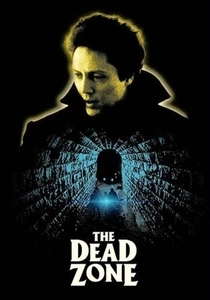Propaganda has always been a powerful tool, often used to manipulate and control public opinion. When combined with the horror genre, it creates a unique blend of fear and political manipulation that can be both terrifying and thought-provoking. Here's a curated list of 10 horror films that explore the dark side of propaganda, offering viewers a spine-chilling look at how fear can be used to control and influence.

The Manchurian Candidate (1962)
Description: This political thriller/horror film explores brainwashing and political manipulation during the Cold War. It's a gripping tale of how propaganda can turn individuals into unwitting tools of larger political games.
Fact: The film was remade in 2004 with Denzel Washington and Meryl Streep, but the original remains a classic for its chilling portrayal of mind control.
 Watch Now
Watch Now 
A Clockwork Orange (1971)
Description: Stanley Kubrick's film explores themes of free will, violence, and state control through the lens of a dystopian future where the government uses propaganda and aversion therapy to control behavior.
Fact: The film was withdrawn from UK cinemas by Kubrick himself due to concerns over copycat violence.
 Watch Now
Watch Now 
The Parallax View (1974)
Description: This film delves into the shadowy world of corporate and political propaganda, where a journalist uncovers a conspiracy involving mind control and assassination. It's a suspenseful look at how propaganda can be used to manipulate public perception.
Fact: The film's title refers to the Parallax Corporation, which is involved in the brainwashing of potential assassins.
 Watch Now
Watch Now 
The Dead Zone (1983)
Description: Based on Stephen King's novel, this film features a teacher with psychic abilities who sees a future where a politician leads the world to ruin. It's a chilling look at how political propaganda can be used to manipulate the masses.
Fact: Christopher Walken's performance as Johnny Smith was critically acclaimed, earning him a Saturn Award nomination.
 Watch Now
Watch Now 
They Live (1988)
Description: John Carpenter's cult classic uses horror elements to reveal a hidden world where aliens control humanity through subliminal messages in media. The film critiques consumerism and media manipulation, making it a standout in propaganda-themed horror.
Fact: The famous sunglasses that reveal the truth were originally supposed to be contact lenses, but the idea was scrapped due to technical difficulties.
 Watch Now
Watch Now 
V for Vendetta (2005)
Description: While not strictly a horror film, this dystopian thriller uses horror elements to depict a totalitarian regime's use of propaganda to control and suppress the populace, making it a fitting entry in this list.
Fact: The film's iconic mask has become a symbol of protest worldwide, inspired by the comic book character Guy Fawkes.
 Watch Now
Watch Now 
The Wave (2008)
Description: This German film, based on a real-life experiment, shows how easily a classroom exercise in fascism can spiral out of control, turning students into a fascist movement. It's a chilling reminder of how propaganda can manipulate even the most rational minds.
Fact: The film was inspired by the "Third Wave" experiment conducted by Ron Jones in
 Watch Now
Watch Now 
The Purge: Election Year (2016)
Description: This installment in the Purge series focuses on political manipulation and propaganda, showing how a senator's campaign against the annual Purge leads to a night of terror orchestrated by those in power.
Fact: The film introduces a new character, Senator Charlie Roan, played by Elizabeth Mitchell, who becomes a target of the Purge.
 Watch Now
Watch Now 
Invasion of the Body Snatchers (1956)
Description: Often interpreted as a metaphor for the fear of communist infiltration, this film shows how individuals can be replaced by emotionless duplicates, a chilling allegory for the loss of individuality through propaganda.
Fact: The film was remade in 1978 with a more explicit political commentary.
 30 Days Free
30 Days Free 
The Stepford Wives (1975)
Description: This film uses horror to critique the idealized suburban life, where women are turned into perfect, subservient housewives through a form of mind control, reflecting on gender roles and societal expectations.
Fact: The term "Stepford wife" has entered the lexicon to describe a woman who conforms to a submissive, idealized role.
 30 Days Free
30 Days Free 








